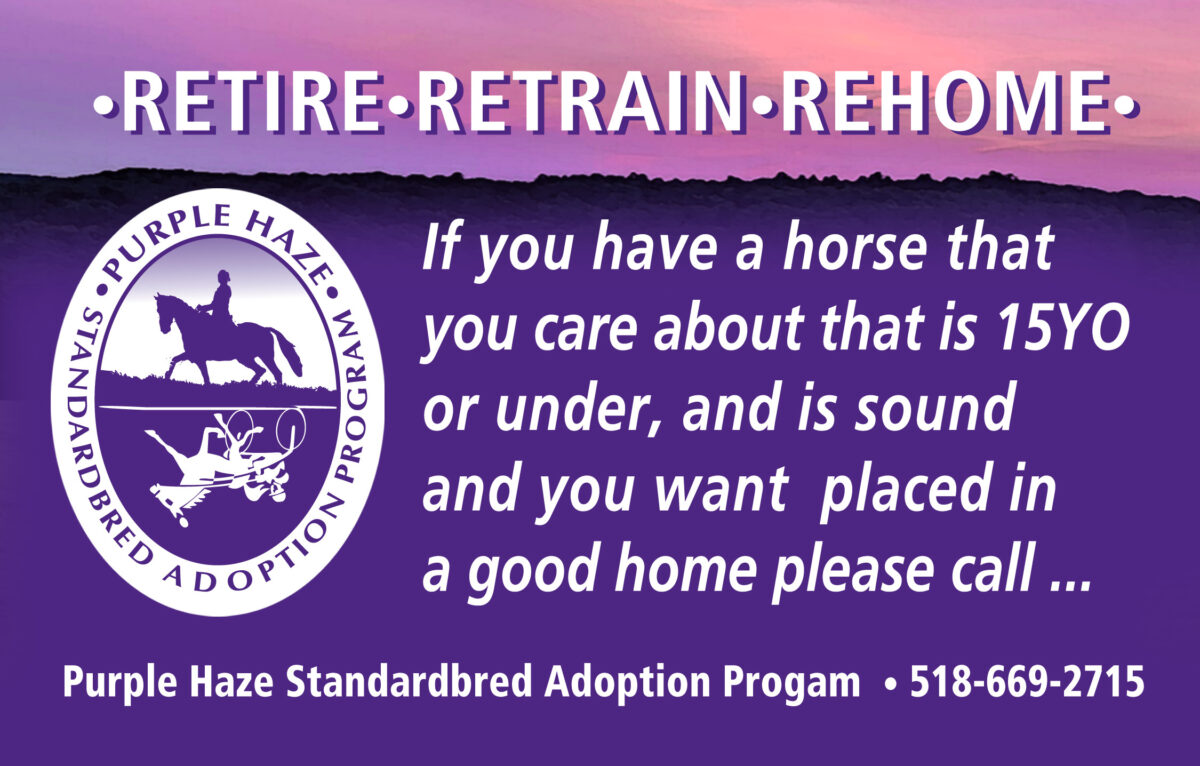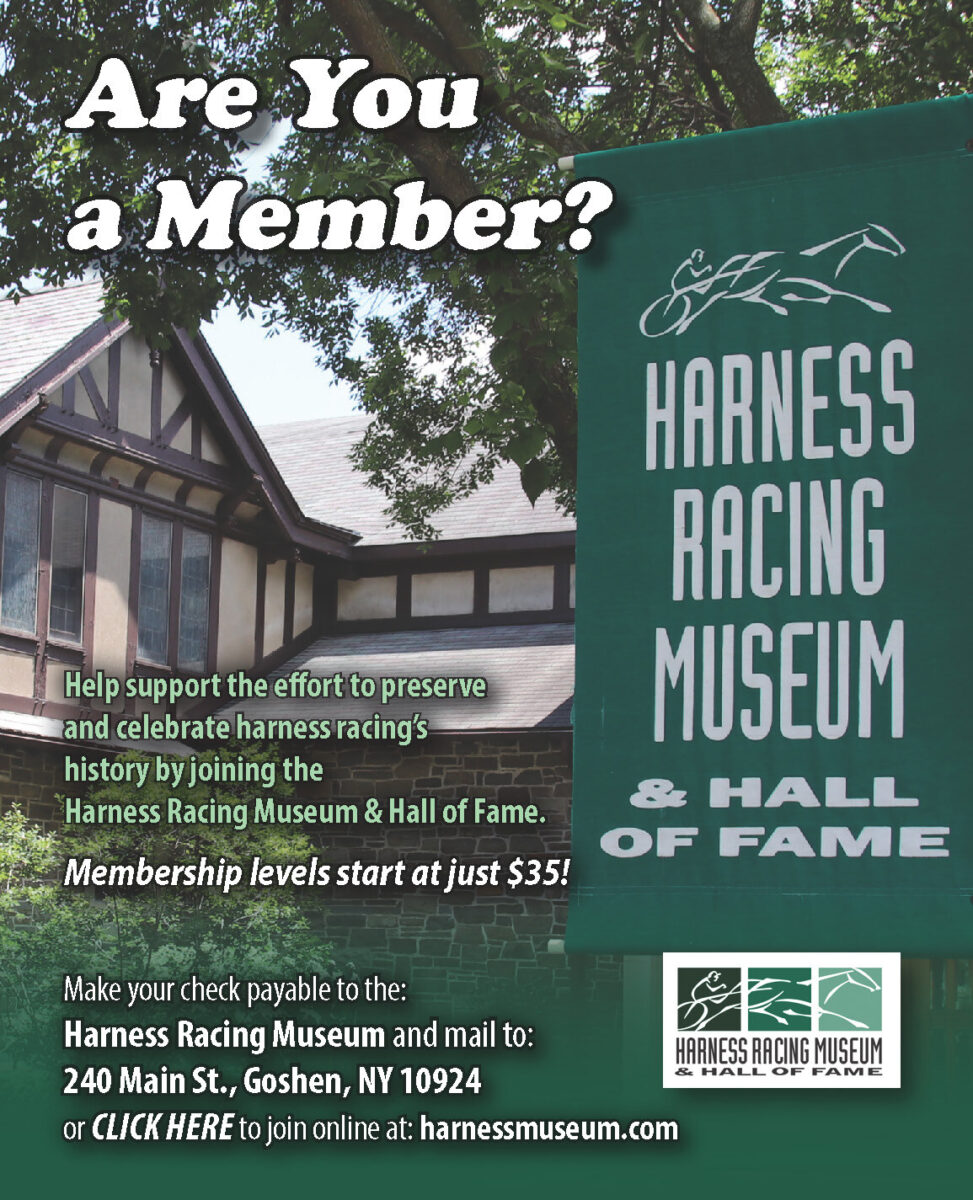Eight outstanding caretakers
In recognition of Women’s History Month we take a look at some of the best caretakers in the business — all of them women.
by Debbie Little
They’ve been called hard-working, indispensable and the backbone of our sport.
But maybe caretakers Marita Berglund, Kim Calenda, Helene Engblom, Shelly Grieco, Sanne Hansen, Diane Lewis, Katie Remmerswaal and Anette Zakrisson are best described as the heart of our industry, since you need a heart to be passionate, love, and most importantly, care.
“If you don’t love the horses, forget about it, you’re never going to want to spend the hours,” said Berglund. “You have to love your horse. You can’t just do it for a paycheck.”
Berglund, 64, grew up in the business in Sweden, and started grooming when she was 15. She currently works for trainer Jim Campbell.
“Probably in one word, she’s dedicated,” said Campbell. “She loves her horses. She lives, eats, breathes her horses. I’ve never seen anybody that knows a horse like she does. She can spot something on a horse faster than me, a veterinarian or anybody else.”
In these days when grooms are hard to find, Campbell appreciates all the good ones that work for him and agrees that they never get enough credit.
“Because they’re the ones that are putting in all the hard work and they definitely deserve a lot more praise and a lot more other things than what they get, too,” he said. “She’s not afraid to voice her opinion and I like that because I always believe that good opinions are priceless, bad opinions are worthless.”
Calenda, 38, grew up riding hunter and jumpers and discovered standardbreds through a part-time job during college, because the blacksmith that shod her riding horses also worked at Pocono Downs.
“At the time, I really didn’t know anything about harness racing except I knew that they pulled the carts around the track,” said Calenda. “To be honest with you, when I started and they told me that I had to tie a horse’s tongue, I thought all the other people in the barn were playing a practical joke on me. That’s how little I knew about this sport.
“I went back to college my sophomore year and two months into it I dropped out because I fell in love with the breed and the sport and the people at the time. I fell in love with it because I’d never been around standardbreds and I think they’re one special breed.”
Calenda has been grooming in our sport for nearly 20 years now and at one time worked for trainer Ron Burke for about nine. She currently has been working for about a year for Julie Miller.
“First of all, [Kim has] horsemanship,” said Miller. “She knows her horses, she knows to look for signs and she’s a great care giver. She understands shoeing, the equipment, why we do what we do and she keeps track of the horse. She lets me know its general health conditions and she knows if something were to go wrong, like the horse is stressed after a warm up or sick or maybe there’s a difference from the day before. She’s just got her finger on the pulse.
“She’s with the horse way more than me. I take care of 60, she takes care of five, so you’ve got to really rely on them to know their job to inform you to do a better job.”
Engblom, 46, who started working with thoroughbreds in Sweden when she was 14, went to college and was a computer technician for a few years before coming back to the horses.
She’s been a standardbred caretaker now for 15 years, six of which were with trainer Jimmy Takter until his retirement. It was during that time Engblom made a special connection with the multiple Dan Patch Award winner, Shake It Cerry.
“She was just a yearling when I came there, but I fell in love with her right away,” said Engblom. “If I wasn’t in the barn and she was in the paddock, they’d have to leave her in the paddock until I came back to the barn, because they couldn’t catch her.
“One time, the whole barn was trying to catch her because she was going to the vet and the vet called me and said ‘I’m coming back later, when are you back at the barn?’ She was my horse all the way through. Even Jimmy still says that. He calls her my horse.”
Engblom currently works with her husband, Per, who has been trying unsuccessfully to get his wife to rethink her day-to-day routine.
“We run it as a family business and I’ve been trying to keep her away from grooming for a couple of years, but it’s hard because that’s really what she wants to do,” said Per. “She wants to be hands-on with the horses even though I need help running the business with office stuff. If you’re passionate about the horses, that’s really what you want to do.
“Her best qualities are her passion and she loves her horses unconditionally. It doesn’t have to be a good horse for her to put in 110 per cent.”
Grieco, 47, grew up in the business but was planning to be an elementary education teacher, until one semester she couldn’t get the classes she needed, so she took it off to work for a trainer at home in Buffalo and the rest is history.
She’s been a groom now for about 20 years, and currently works in Hall of Famer Linda Toscano’s barn, where she’s cared for many good horses, but 2013 Dan Patch Male Trotter of the Year, Market Share, is definitely her favorite.
“He accomplished a lot on the racetrack, but he was more important to me off the racetrack,” said Grieco. “We just had that connection. He read my moods like no human ever has. He knew if I was in a bad mood, he’d do silly stuff and I’d just snap out of it. He was just a special horse. And it’s hard for people to understand. They’re like, ‘Oh, he’s just a horse.’ No, he’s not. He was my best friend.”
Having worked with Grieco for about 16 years, Toscano knows that she’s devoted to her horses.
“She gives them all a chance,” said Toscano. “From a trainer’s point of view, that’s the highest compliment you can pay a groom. She may love one more than the others, but they all get the same care. I’ve seen her pass up the opportunity to take care of a good horse, to keep one that deserves a shot.”
Hansen, 54, was introduced to harness racing in Denmark at a young age when her father would take her to the track. But it was in high school where she developed her love of the sport.
“Over there in school,” said Hansen, “you get to pick a week in 9th grade and two weeks in 10th grade for whatever occupation that you think you’d like and they send you out and I picked harness racing. So, I went out and I loved it and I’ve been here ever since.”
Throughout her 37-year career, Hansen has worked for Hall of Famers Billy Haughton, Gene Riegel, and, presently, Toscano.
“Sanne’s one of the hardest working people I’ve ever met,” said Toscano. “Where her horses go, she goes. I’ve seen her race a horse in Tioga, hop on another trainer’s horse van to get to Vernon to paddock another one of her horses at night. There’s no end to her work ethic. She’s worked for the best before she came to work for me. I’ve been lucky enough to have her for 15 years. She wouldn’t think of taking a shortcut on any horse.
“We physically cannot take care of these horses ourselves. And when you get lucky enough to get somebody the caliber of Shelly and Sanne, you have to appreciate it, because sometimes it’s a thankless job.”
Lewis, 38, grew up on the backstretch at Rosecroft doing stalls and horse laundry on weekends at 11 years of age and getting her license at 14.
“I’m third generation, so I was born on the track,” said Lewis. “I took my first bath in a muck bucket so to me this is all I know. I live and breathe this. You could not take me out this industry and have me survive because this is what I bleed. This is what I breathe.”
Lewis was inspired by her mother, Terry, who was a single parent raising three kids, racing a 30-horse stable and battling for top trainer honors.
“I was 12 years old and I could read a set of x-rays like a veterinarian,” said Lewis. “My mom was amazed and she would stand in the barn and say ‘Ask my daughter’.”
Lewis has worked the last five years for Hall of Famer Joe Holloway, taking care of Perfect Sting and Zero Tolerance.
“She’s very conscientious and aware of her horses,” said Holloway. “That seems to be the common trait of most of the better grooms. They are conscientious, they care for their horses, they try to think about what they need and what they want and keep them happy.”
Remmerswaal, 30, was practically born in a barn in Ontario and originally planned to become a veterinarian, but became too involved in the sport to go to school for such a long time.
She has been grooming for 13 years and currently works for 2020 USHWA Trainer of the Year Nancy Takter. Her favorite thing about her job is making the horses happy.
“I love caring for the horses,” said Remmerswaal. “It’s not something you can teach. It’s just something you feel. To see them go out and perform well, and play and eat well.”
Remmerswaal appreciates those quiet times with her horses because as April approaches, so do the long days of traveling for stakes races.
“There were nights in Lexington where I’d go to Indiana to race and I would get back and I’d just start my work because we got back at 4 in the morning,” she said.
Zakrisson, 45, was born into this business in Sweden, but finished college before starting her caretaker career.
Her first good one when she came to the U.S. was Rockin Image. Working for Jimmy Takter and now for Nancy, she’s taken care of quite an impressive group of horses, such as American Jewel, Ariana G, Captain Crunch, Idyllic Beach, Sorella, Trixton, The Ice Duchess, The Bank and Uncle Peter.
“I’m pretty spoiled,” said Zakrisson. “You kind of learn don’t get too attached too early because you don’t know how long you’re going to keep them.”
Even though Nancy encourages her employees to take their week of vacation every year, Zakrisson rarely does. Zakrisson made an exception in 2019, when her father turned 70 and she attended a party in Florida.
The dedication of both Remmerswaal and Zakrisson is not lost on Nancy.
“I think what makes them good grooms is they always fight for their horses,” Nancy said. “In big barns like mine, I have 82 horses to think about all day. But I can promise you that every single one of their horses are mentioned to me every single day. They’re great, too, because they don’t leave any stones unturned.”
It’s hard work and long hours with very little sleep. Why would they want to do this? Here are their answers:
“Every winter I say this is the last time. I’m not doing it anymore,” said Berglund, who hates the cold. “But I’m still here. I don’t know anything else. This is my life. I guess I was born to do this.”
“I know as a little girl horses were always something I dreamed of and wanted,” said Calenda. “You have to love what you’re doing to work those types of hours. When you get a bond with a horse, it’s something like you’ve never felt.
“What The Hill, his barn name was Bob. If he was at the bottom of the field and I would just yell his name Bob, he would nicker and gallop all the way up the field and come to me. They know their people’s voices.”
“I love the horses and I love the racing,” said Engblom. “And I love winning. Winning is me being proud of my work. When you go out there and make the horses look as beautiful as possible and they do something good and they win, then you know you did a good job.”
“I always blame it on being in my blood, so technically, I blame my father,” said Grieco. “My dad raised me in this business and he told me ‘You either do it right or you don’t do it at all.’ I think it’s the passion for my horses that keeps me going. Through the long days, the short nights, the passion I have for them keeps me in this.”
“I love the horses and it makes me happy,” said Hansen. “That’s the way of living that I chose. You get one life and you’ve got to be happy.”
“Why do people become nurses?” said Lewis. “Why do people become doctors? Just for something to do? No. I do this because this is what I love. It’s the thrill of watching something from a baby make it to the races or even watching an overnight horse progress week after week. If it was easy everybody would do it. The hardness is what makes it great. It takes a special type of person to do what we do.”
“Because I love the sport. I love the animal,” said Remmerswaal. “It’s something I grew up in and I can’t imagine doing anything else.”
“For me, it’s not my job, it’s a lifestyle,” said Zakrisson. “When you care, the horses feel that you care. Everybody that loves the business, they do everything they can for the horses. That’s just the way it is. That’s what’s important. It doesn’t matter what other people think you should do, what matters is what makes you happy.”

















